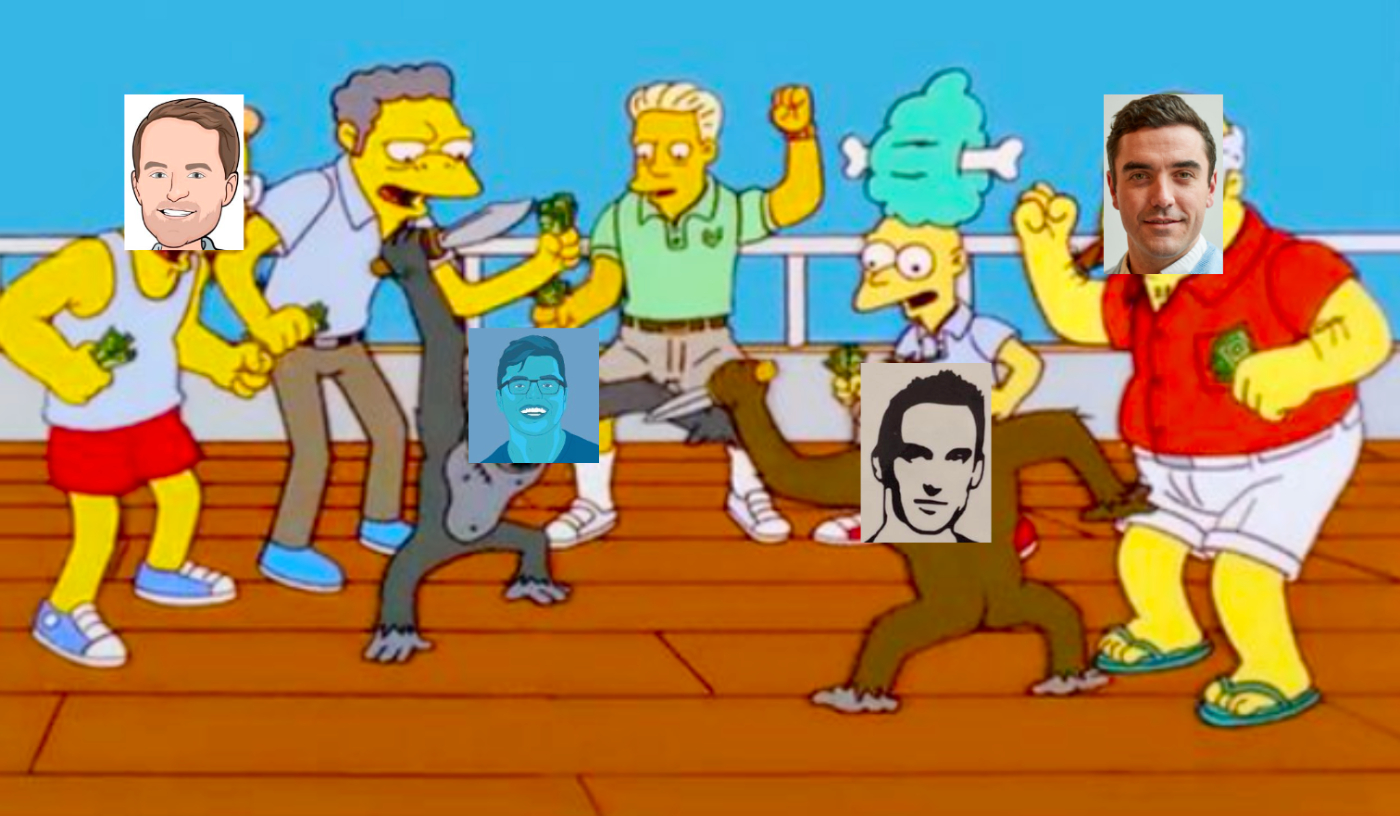
Introducing the Every Talent Collective!
Plus everything we published this week.
July 23, 2022 · Updated January 26, 2026
Knowledge Partner: McKinsey & Company
The Future of the Workplace. The COVID-19-pandemic caused a tectonic shift in where, when, and how we work. McKinsey experts in real estate, people and organizational performance, and operations are collaborating to help leaders understand how the workplace is changing and how their organizations can best prepare. Read here.
Happy Sunday!
This week we’ve got words on Stripe’s work culture, a use case for crypto, and the key to doing market analysis. But first, some news:
Every is building a talent collective! We’re excited to team up with Pallet to match the super-talented folks from our community with job opportunities at amazing companies. Here are the deets:
What’s a talent collective? A talent collective is an invite-only job board. In Every’s case, it’s just for our readers—a pretty smart set of folks, if we say so ourselves!
Why should I sign up? You’ll have access to awesome job opportunities hand-vetted by the Every team. Right now our board has opportunities at Ramp, Brex, and a16z.
What’s the catch? No catch! Your information is private, and no one will know you’re job hunting unless you want them to. You’ll get intro requests from amazing companies and will be able to accept them at your leisure.
Ready to find your next big thing? Sign up here.
Looking for top talent? Hire from Every’s community.
Now, on to this week’s posts!
What I Miss About Working at Stripe
Brie Wolfson / EverySilicon Valley is renowned for a certain kind of work culture: long hours, late nights, unflinching feedback, and relentless focus, all driven by a singular desire to make the work truly great. It’s the culture that Brie Wolfson experienced while working at Stripe—and that she worries is falling by the wayside.
In this piece, Brie looks back on the years she spent at Stripe, and what it was that made her time there so rewarding, both professionally and personally. And she wonders: what do we lose when we lose that commitment to doing truly great work?
Crypto Has a Use Case
Evan Armstrong / Napkin MathEvan Armstrong, crypto stan? That may be a bridge too far—but he has found a context where using crypto actually makes sense: kickstarting a network.
This week on Napkin Math, Evan unpacks web3’s killer use case, using the talent marketplace Braintrust as a case study. How do Braintrust’s tokenomics help it overcome the “cold start problem” that so many network businesses face? And can Braintrust truly go toe-to-toe with its web2 peers?
Finding Power: How to Do Market Analysis
Nathan Baschez / DivinationsMarket analysis has a reputation for being… not exactly the most riveting subject in the world— and Nathan thinks that’s a shame. Done well, market analysis has the potential to answer some of the deepest questions in business—namely, why do some companies in a given industry go on to build huge, profitable businesses, while others wither away?
In this piece, Nathan takes us through his process for analyzing any industry. It’s a fusion of ideas from three of the most important thinkers in business strategy—Clayton Christensen, Michael Porter, and Hamilton Helmer—and it all comes down to answering one question: what kinds of strategies generate market power?
The Standards Innovation Paradox
Michael Mignano / EveryOpen standards—think HTTP, RSS, and SMS—are great for a lot of reasons, chief among them being that they help new technologies catch on quickly, because anyone can use them. But, as Anchor co-founder and former Head of Talk Audio at Spotify Michael Mignano argues, that accessibility often comes at the cost of something else: innovation.
In this post, Michael unpacks the “standards innovation paradox” and explains how open protocols’ low barrier to entry may cause a drag on the pace of innovation. Plus, Nathan chimes in to share some of the counter-arguments to Michael’s post, and his own thoughts.
Why “Suck It Up” Isn’t a Solution
Jason Shen / Rethinking Resilience“Tough times don’t last, tough people do.” “When the going gets tough, the tough get going.” Our culture is overflowing with messages telling us that when we experience a struggle or a setback, the best thing we can do is “man up” and power through.
In this piece from the Rethinking Resilience series, Jason Shen challenges the received wisdom about toughness as a resilience strategy with another perspective and asks: What if our preoccupation with toughness is actually doing more harm than good?
A Few More Recommendations
Twitter is Probably Screwed | Napkin Math
Twitter earnings are in and the numbers are… not looking so hot. $334M in losses paired with 2.5x more in stock-based compensation than adjusted EBITDA—yikes! Evan called it in this piece back in March: Twitter is probably screwed.
The Million-Follower Factory| The Information
TikTok may be making everyone famous—more than 39,000 TIkTok accounts now have more than 1 million followers—but that fame comes at a steep cost, and not a lot of upside for creators. Can TikTok turn itself into a more creator-friendly platform?
Learn How to Build for the Creator Economy | Li Jin
Last year, Li led a course teaching builders and operators everything they needed to know about building for the creator economy. Now, all the videos and materials from that course are available for free.
The Art of Thinking (Differently) | The Weekly Filet
The Art of Thinking (Differently) is a collection of outstanding articles on the fascinating ways our minds work and how we can do things differently, handpicked by the author of one of the best curation newsletters out there.
Curious minds from all around the world trust the Weekly Filet for food for thought. Every Friday, it delivers a great selection of things to read, watch and listen to, with a healthy dose of serendipity and nerdiness. Sign up here, you won’t regret it.
That's all for this week!
The Only Subscription
You Need to
Stay at the
Edge of AI
The essential toolkit for those shaping the future
"This might be the best value you
can get from an AI subscription."
- Jay S.
Join 100,000+ leaders, builders, and innovators

Email address
Already have an account? Sign in
What is included in a subscription?
Daily insights from AI pioneers + early access to powerful AI tools
.jpg)











Comments
Don't have an account? Sign up!